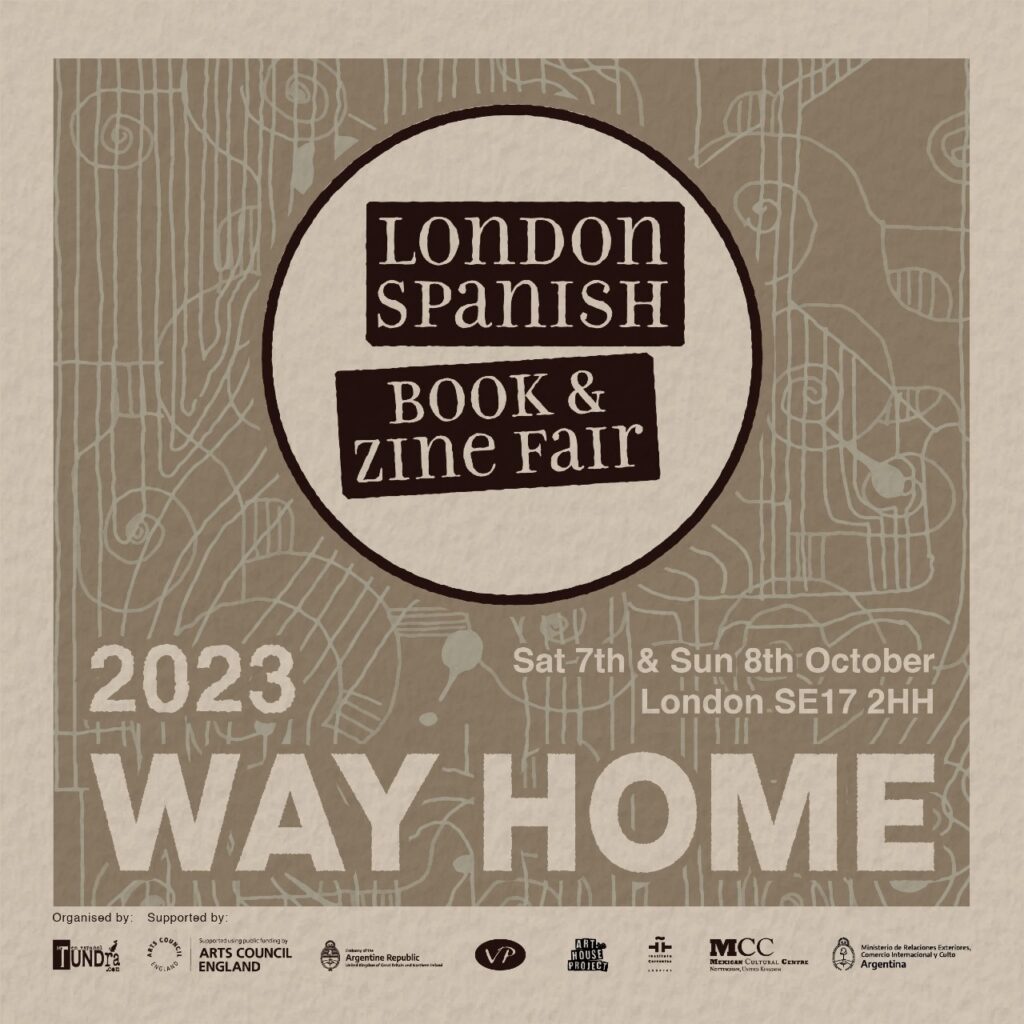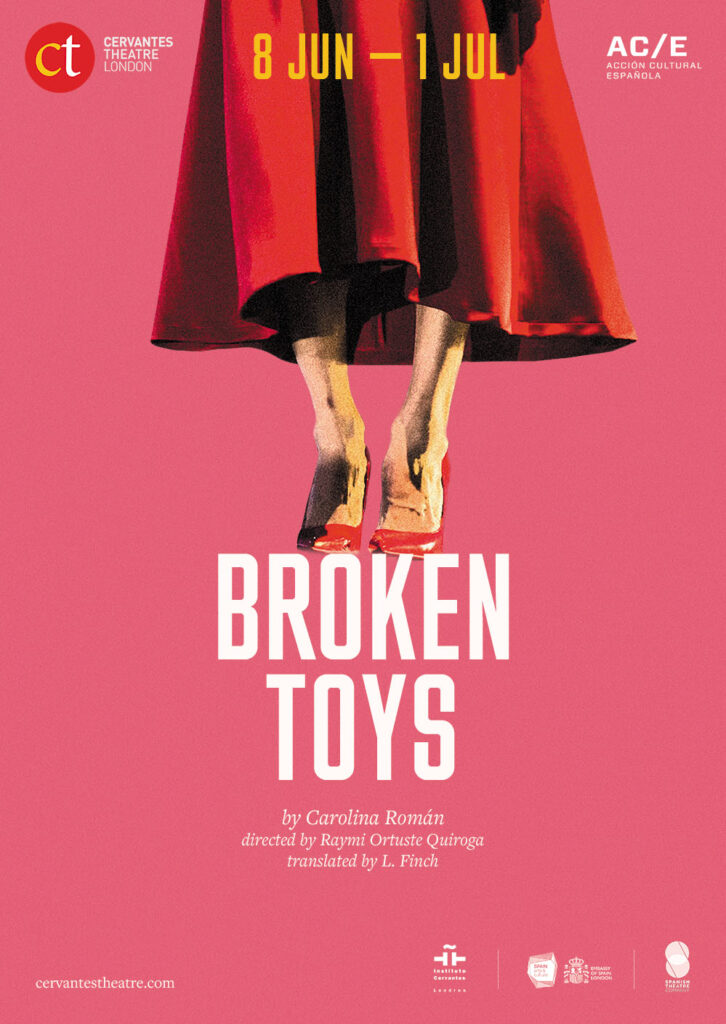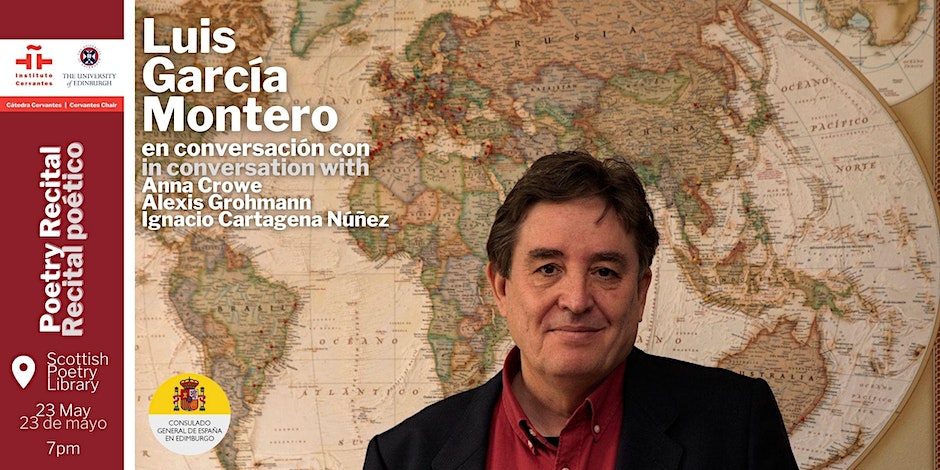Full Programme London Spanish Book & Zine Fair
| The Fifth edition of the London Spanish Book & Zine Fair will take place on Saturday 7th and Sunday 8th October 2023. Way Home is the theme of the book and zine fair and we hope you can be part of it! With a lineup that includes acclaimed writers Cecilia Szperling (Argentina), Andrea Jeftanovic (Chile), Lucía Asué Mbomío Rubio (Spain) and Ángela Nzambi (Equatorial Guinea), among others, the Way Home edition promises many surprises and encounters: Theatre in Translation with Out of the Wings; Queer poets: Love in a new age; Writers in no man’s land; Paste Up activities with London International Paste Up Festival; LO(R)CA me tienes with Ana Gomila Domènech and so much more. Full Programme More than 40 exhibitors will be present at this year’s edition. The fair will take place over two full days and the programme will include talks, exhibitors stalls, creative writing, poetry and zine workshops, an outdoor paste up activity, storytelling for children and a Poetry Open Mic. Bilingual activities (English/Spanish). Indoor Cafe and so much more!Meet publishers, writers, translators, fanzine makers, illustrators and open minded readers interested in the Spanish language. The London Spanish Book & Zine Fair is free to attend but you need to register beforehand on Eventbrite.Workshops are free and paid and you need to additionally register for each one (Book your Workshop). Places are limited. |
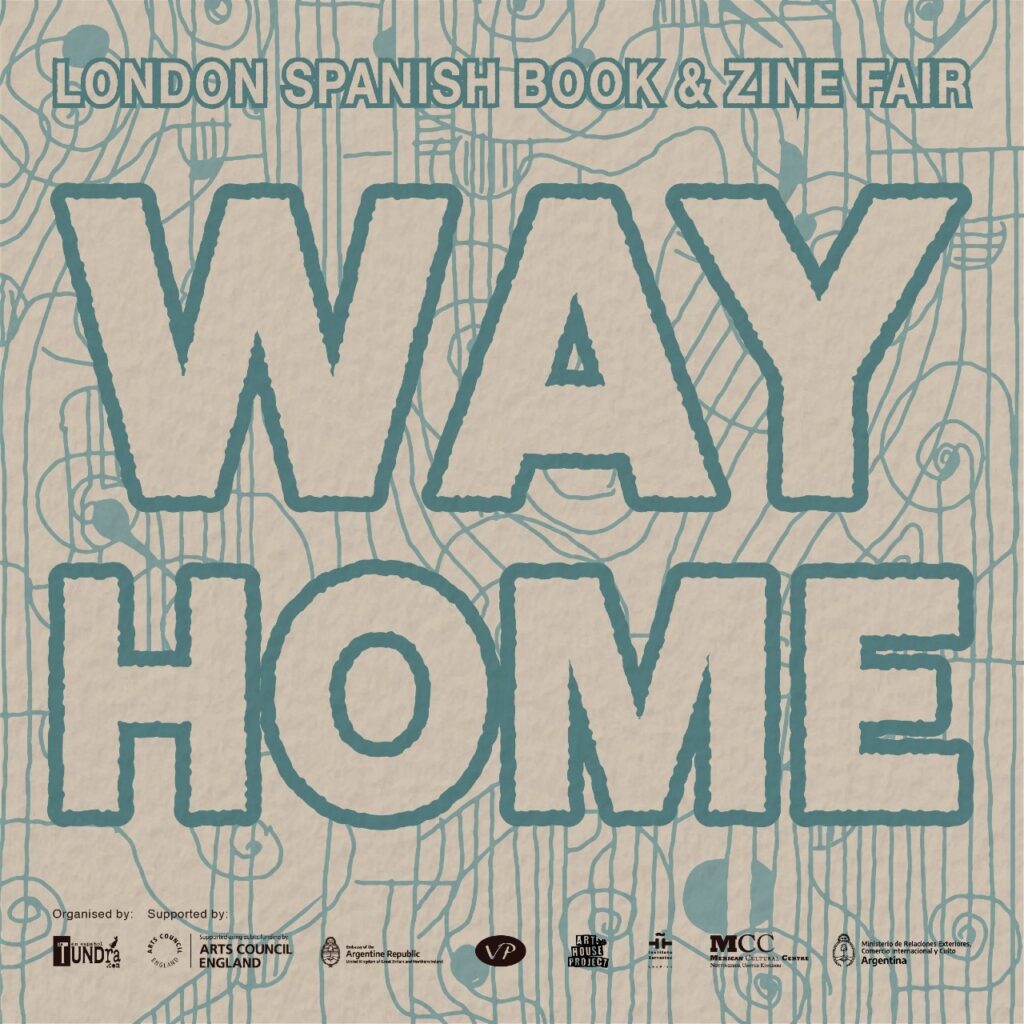
Fifth Edition of the London SpanishBook & Zine Fair
Saturday 7th and Sunday 8th October 2023
The Crypt at St Peter’s
Liverpool Grove
London SE17 2HH (see map)
Note: The venue has disabled access
OPENING TIMES
Saturday 7th October 2023: 11 am to 5 pm
Sunday 8th October 2023: 12.30 pm to 5 pm
Organized by La Tundra Revista since 2019.
We would like to thank to our funders, sponsors, friends and collaborators for making this edition of the book and zine fair possible: Arts Council England, Instituto Cervantes London, Argentine Embassy in London, Victorina Press, Mexican Cultural Centre, London International Paste Up Festival and Arts House Project London.
Rincón bibliográfico de julio
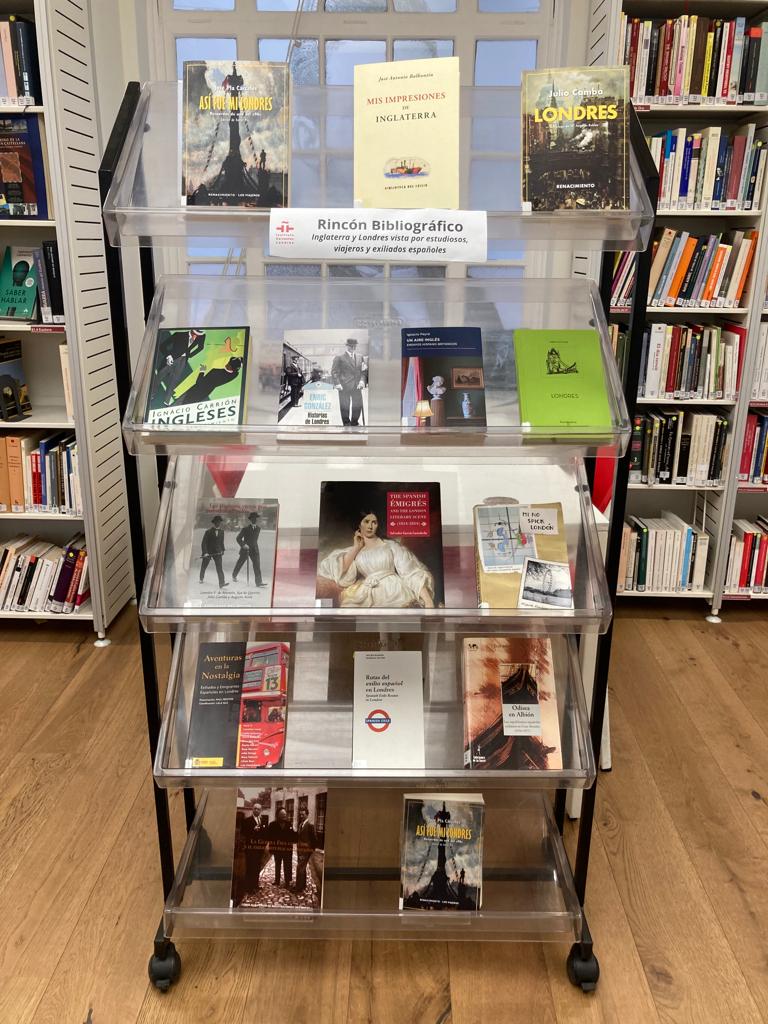
London and England as seen by Spanish scholars, travellers and exiles
We invite you to join us on a bibliographic tour with various Spanish scholars, travellers, experts, novelists and politicians, who, for different reasons, have lived in London and other parts of England. Discover the ways in which their impressions and experiences made their way into their works.
Inglaterra y Londres vista por estudiosos, viajeros y exiliados españoles
Os proponemos un paseo bibliográfico con distintos estudiosos, viajeros, eruditos, novelistas y políticos españoles que por distintas circunstancias han vivido en en la ciudad del Támesis y en otras partes de Inglaterra y que plasmaron sus impresiones y sus vivencias de una u otra forma en sus obras.
Sara Baras regresa a Londres con su espectáculo “Alma”

Sara Baras, leyenda viva del mundo del flamenco, inauguró ayer una nueva edición del Flamenco Festival en el teatro Sadler’s Wells de Londres, con su espectáculo “Alma”, que representará hasta el próximo domingo.
Baras ha pasado los últimos 30 años construyendo una carrera internacionalmente elogiada como bailarina, directora y coreógrafa.
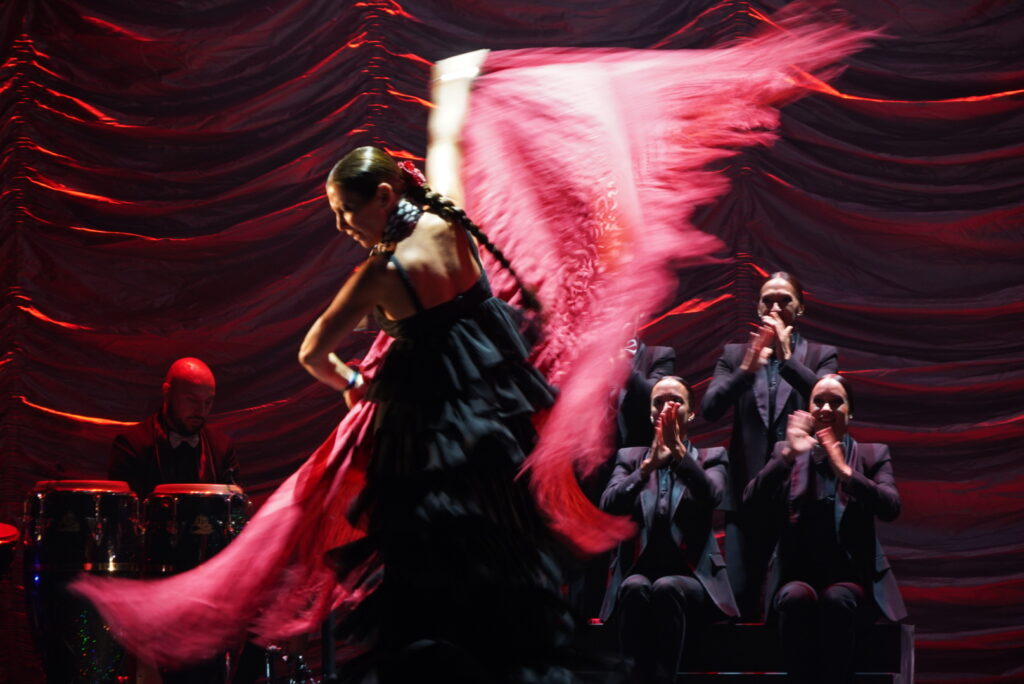
Ganadora del Premio Olivier 2020 a la Mejor Danza, así como de varios de los máximos galardones de la danza española, Baras infunde a las formas clásicas (sobre todo a la farruca) una poderosa sensibilidad moderna.
La española regresa a Londres por primera vez desde su aclamada obra de larga duración “Sombras” en 2019, Baras elabora una carta de amor a los orígenes del flamenco con Alma.
Mezclando elementos tradicionales del flamenco con ritmos de bolero, Baras y su compañía ofrecen una noche transformadora de zapateado propulsivo, formidable musicalidad y actuaciones inolvidables.
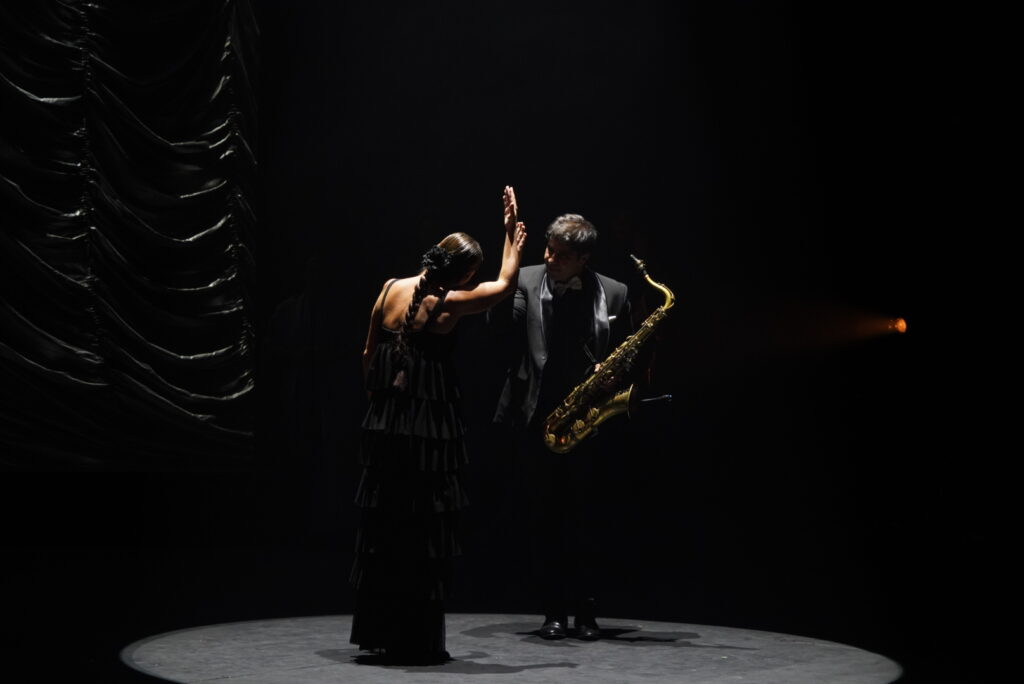
Sara Baras es una de las representantes de flamenco más conocidas en el mundo de hoy. Su carrera artística comenzó hace más de 30 años y la llevó a actuar en teatros de todo el mundo. En 1998 creó su propia compañía de baile, Ballet Flamenco Sara Baras.
Hasta la fecha, ha realizado 14 espectáculos, todos ellos creados y coreografiados por ella misma: ‘Sensaciones’ (Sensaciones); ‘Cádiz-La Isla’; ‘Sueños’ (Sueños); ‘Sueños de Sara’ (Sueños de Sara); ‘Juana la Loca’; ‘Mariana Pineda’; ‘Sabores’ (sabores); ‘Baras — Carreras’; ‘Carmen Esencia’ (esencia); ‘La Pepa’; ‘Medusa’, la guardiana; ‘Voces’; y su flamante especáculo ‘Sombras’ (Shadows).
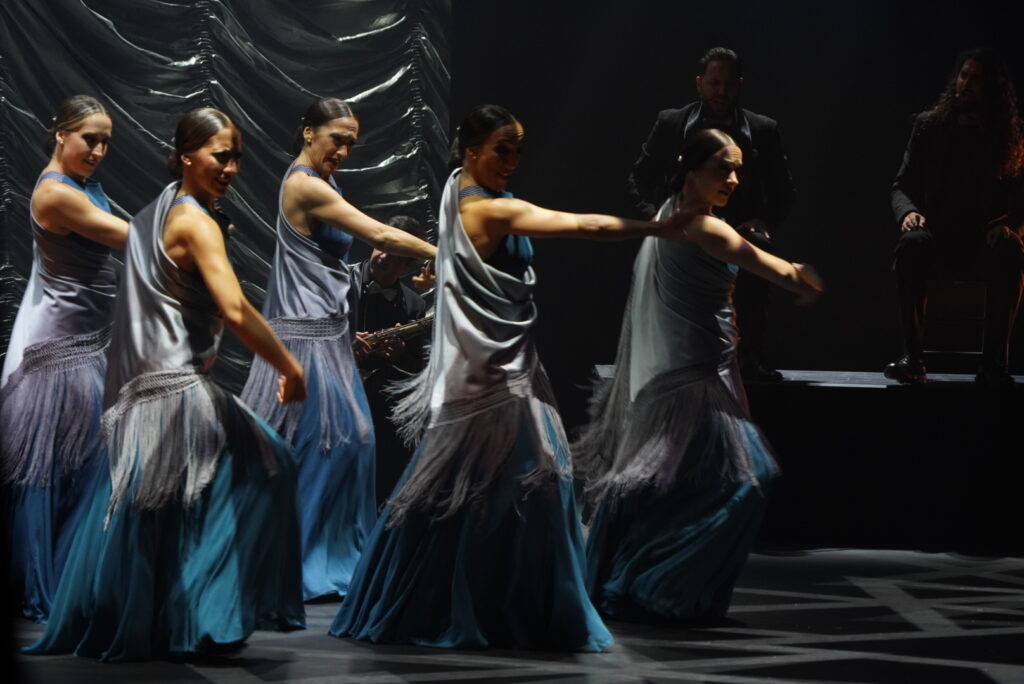
Spanish is the most popular A-level language in schools across England for the fourth year running
The British Council presented today the results of the Language Trends England 2023 report.
- For the fourth year running, Spanish continues to have the highest number of A-level entries.
- Official exam data show that, for the fourth year running, Spanish is the most popular language at A-level, replacing the long-standing tradition of French being in the top spot. The diverging trends noted in the graph below would suggest that Spanish now has the highest A-level entries and it is predicted that this trend will continue in future cohorts. It is interesting to recall that French continues to be the most taught language in primary schools.

- The three most popular languages on the school curriculum in England are French, German and Spanish.

- French continues to be the most popular language at Key Stage 3 (ages 11-14), taught in 87 per cent of responding state schools and 97 per cent of responding independent schools, followed closely by Spanish in 75 per cent and 93 per cent of state and independent schools respectively.
- French, German and Spanish remain the ‘big 3’ curricular languages; with planned revisions to the GCSE specifications in these languages to take place from 2024, there are exciting times ahead in the study and research of future language trends in England.
Read the whole Language Trends England 2023 report here.
Broken Toys opens this week!
| Coinciding with PRIDE month and at a time when Drag Artists face bans, Trans rights are under attack and hate crimes against LGBTQIA+ people are on the rise, this story documents the struggles of the past, memorialises queer love and celebrates the resilience of collective joy and profound self-expression. Don’t miss the UK première of Broken Toys, an award winning play by Spanish playwright Carolina Román, directed by Raymi Ortuste and translated by L. Finch. Join Cervantes Theatre this Thursday 8th June at 7:30pm for the opening night and post show Q&A with Carolina Román, Raymi Ortuste and the cast. 8th June- 1st July Thurs-Sat Broken Toys (in English) From her childhood days during the Franco regime, playing in the dovecote of her family home, Marion dreams of a life without shame – despite being assigned the word “male” at birth. In the underground sanctuaries of a hiding but thriving queer community, Marion begins to move out of the cages that have kept her true self confined. With the love of a bruised but bright Drag star, Dorín Delacroix, Marion takes us into a place of light, memory, pain, communion, and celebration. At a time when Drag Artists face bans, Trans rights are under attack and hate crimes against LGBTQIA+ people are on the rise, this story documents the struggles of the past, memorialises queer love and celebrates the resilience of collective joy and profound self-expression. In an act of defiance and radical self-expression, these bodies will inhabit the centre with pride. And send a love letter to all in the LGBTQIA+ community who have been and are still persecuted for choosing to fly… |
Irene Vallejo launches Papyrus: The Invention of Books in the Ancient World in the UK
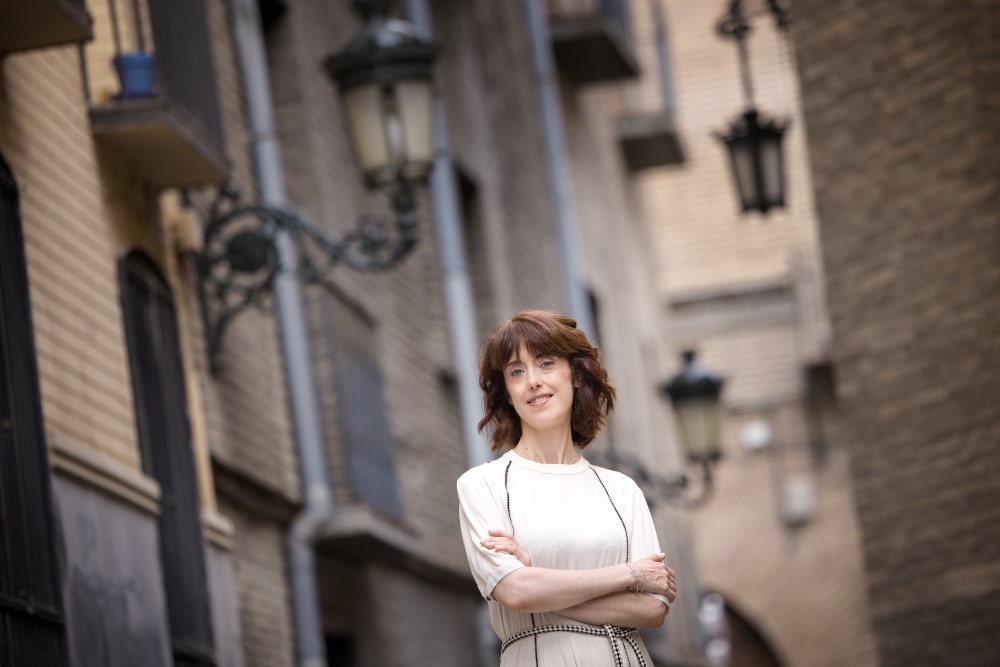
Spanish writer Irene Vallejo presents the English translation of her book Papyrus: The Invention of Books in the Ancient World (El infinito en un junco: La invención de los libros en el mundo antiguo, in Spanish) in four places in the United Kingdom: the Hay Festival, the Hereford cathedral, the FT Weekend Oxford Literary Festival and the Cervantes Institute in London.
«The presence of Irene Vallejo and her essay in the United Kingdom is due to the enormous success that her work is having in this country. It is a work that explores the origins of writing, books and lovers of books, literature, history and reading in an exquisite way,» says the director of the Cervantes Institute in London, Víctor Ugarte.
«This essay is, to a large extent, a tribute to the dazzling tradition of the British essay, capable of interweaving knowledge, and the reader’s seduction with literary writing, emotion and even humour. For this reason, I undertake this journey as a pilgrim towards a genre and a culture that has largely inspired my writing,» adds the author, winner of the 2020 Spain National Essay Award.
Papyrus embarks on an enthralling journey through the history of books and libraries in the ancient world, describing the mysterious origins of writing and the adventure of those who have safeguarded our most valuable stories from destruction and oblivion. As an unexpected publishing phenomenon, it has achieved 50 reprints in Spain, is being translated into 35 languages, published in more than 60 countries, and it has sold more than one million copies worldwide.
Papyrus was awarded with the National Essay Prize, the ‘El Ojo Crítico’ Prize for Best Debut and the Booksellers’ Guild Award in Spain, the Henríquez Ureña Essay Prize in Mexico and the Wenjin Prize from the National Library of China, among others. Published in UK by Hodder & Stoughton and translated into English by Charlotte Whittle, it was a Financial Times, The Economist and Mail on Sunday Book of the Year.
Hay Festival: Sunday, 4 June, 11.30am
Irene Vallejo will be in conversation with The Guardian’s cultural journalist Charlotte Higgins at the prestigious Hay Festival, in Wales, on Sunday 4 June at 11.30 am.
«I live in disbelief and gratitude for the trust of the legendary Hay Festival, who previously invited me to Segovia in Spain and Cartagena de Indias in Colombia. I’m looking forward to the city of books, the territory of the first times, Hay-on-Wye, where it all began and radiated inspiration to other places,» says Vallejo.
More information: bit.ly/vallejohayfestival
Hereford Cathedral: Monday, 5 June, 7 pm
The author will be in conversation with translator Charlotte Whittle, on Monday, 5 June, at 19:00, at Hereford Cathedral, whose library contains the Hereford Mapa Mundi, a marvellous jewel, the largest known medieval parchment map, made around 1300.
«Hereford Cathedral is a magnet for the fabulous treasure it holds, the famous medieval Mappa Mundi, the spiritual cartography of a world where legends and classical knowledge converged with biblical imagery. It will be an honour to be able to talk about the love of books in this place of vibrant traditions,» says Vallejo.
More information: bit.ly/VallejoHerefordCathedral
FT Weekend Oxford Literary Festival: Tuesday, 6 June, 6.30 pm
The writer will be speaking at the FT Weekend Oxford Literary Festival on Tuesday 6 June at 6:30 pm about her bestseller on the creation of early books and the literary culture of the ancient world alongside The Sunday Times head of fiction Peter Kemp.
Vallejo’s event is part of the festival’s programme of Spanish and Latin American literature and culture. Furthermore, it is also an exceptional setting for the author, as she enjoyed a scholarship in Oxford whose adventures ended up becoming an essential chapter of Papyrus, so it is an extraordinary return to a city where, in a way, the seed of this book began to be born.
«I feel immense gratitude to Professor Sir Fergus Millar, a brilliant and outstanding historian, who hosted me from the Oriental Institute. During that stay, I was able to explore the labyrinth of the fabulous Oxonian libraries, almost as if I were a time traveller, returned to mythical Alexandria. That experience, so shocking for the young student I was at the time, ended up being transformed into literary material,» says Vallejo.
More information: https://bit.ly/vallejooxfordliteraryfestival
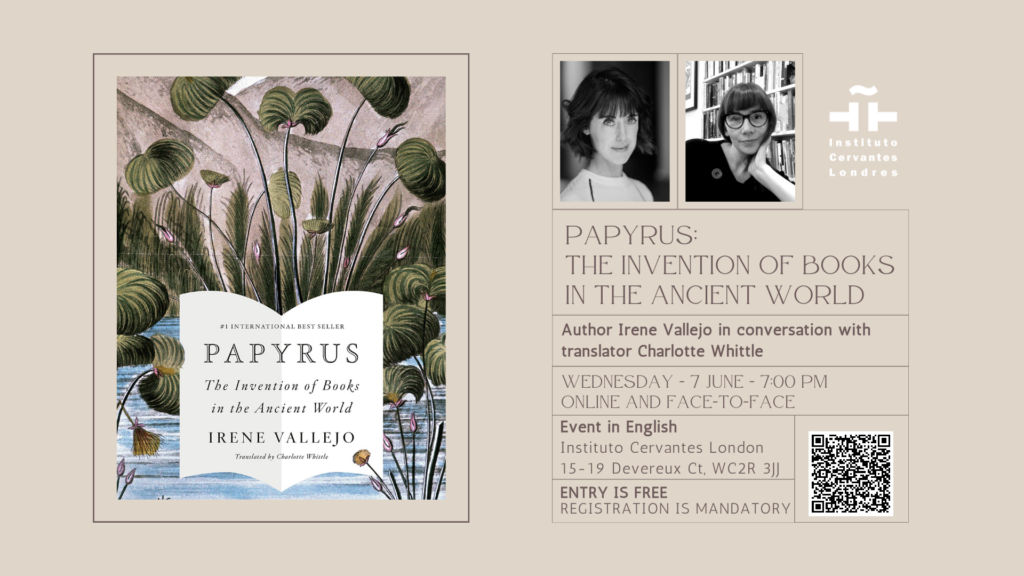
Instituto Cervantes London: Wednesday, 7 June, 7 pm
Vallejo will also talk about Papyrus on Wednesday, 7 June, at 7:00 pm, in the Luis Cernuda room at the Cervantes Institute in London. It will be a free, hybrid activity in which the author will be accompanied by her English translator, Charlotte Whittle.
«Returning to Oxford and London, the cities where I studied and learned, whose literature inspired me to write Papyrus, has a symbolic dimension for me: a long road of initiation and literature returns me to the place where I began to imagine the possibility of being a writer,» says Vallejo.
Copies of Papyrus, published by Hodder Books, will be available for purchase at the Cervantes Institute in London and will be sold by Romancero Books bookshop.
«I feel deeply moved to present this book at the Instituto Cervantes, where today’s saviours of books work intensely to support and protect Spanish-language literature, with admirable enthusiasm and an unbridled passion for culture», says Vallejo.More information: bit.ly/VallejoPapyrus7june
Irene Vallejo presenta en Reino Unido la traducción al inglés de El infinito en un junco

La escritora española Irene Vallejo presenta en varias ciudades de Reino Unido la traducción al inglés de su ensayo El infinito en un junco: La invención de los libros en el mundo antiguo, (Papyrus: The Invention of Books in the Ancient World), haciendo paradas en el Hay Festival, en la catedral de Hereford, en el FT Weekend Oxford Literary Festival y en el Instituto Cervantes de Londres.
“La presencia de Irene Vallejo y su ensayo en el Reino Unido obedece al enorme éxito que su obra está teniendo en este país. Una obra que recorre de forma primorosa los orígenes de la escritura, los libros y los amantes de los libros, de la literatura, de la historia y la lectura”, asegura el director del Instituto Cervantes de Londres, Víctor Ugarte.
“Este ensayo es, en buena medida, un homenaje a la deslumbrante tradición del ensayo británico, capaz de entrelazar el conocimiento, la seducción al lector con una escritura literaria, la emoción e incluso el humor. Por eso, emprendo este viaje como una peregrina hacia un género y una cultura que en buena medida ha inspirado mi escritura”, añade la autora, ganadora del Premio Nacional de Ensayo 2020.
El infinito en un junco emprende un apasionante viaje al origen de los libros, el misterioso nacimiento de la escritura y la expansión de la lectura: la aventura de salvar del olvido nuestras palabras más valiosas. Inesperado fenómeno editorial, ha alcanzado 50 ediciones en España, se traduce a 35 idiomas, publicado en 60 países y ha superado el millón de ejemplares en todo el mundo. Recibió el Premio Nacional de Ensayo, el Premio Ojo Crítico y el Premio de las Librerías en España, el Premio Henríquez Ureña en México o el Premio de la Biblioteca Nacional de China, entre otros.
Publicado en el Reino Unido por Hodder & Stoughton y traducido al inglés por Charlotte Whittle, fue seleccionado entre los mejores libros del año por Financial Times, The Economist y Mail on Sunday.
Festival de Hay: Domingo, 4 de junio, 11:30 horas
Irene Vallejo estará en conversación con la periodista cultural del diario The Guardian Charlotte Higgins, en el prestigioso festival de Hay, en Gales, el domingo, 4 de junio, a las 11.30 horas.
“Vivo con incredulidad y gratitud la confianza del legendario Hay Festival, que anteriormente me invitó a Segovia en España y a Cartagena de Indias en Colombia. Estoy deseando conocer la ciudad de los libros, el territorio de las primeras veces, Hay-on-Wye, donde todo comenzó e irradió inspiración a otros lugares”, asegura Vallejo.
Más información: bit.ly/vallejohayfestival
Catedral de Hereford: lunes, 5 de junio, 19:00 horas
La autora estará en conversación con la traductora Charlotte Whittle, el lunes, 5 de junio, a las 19:00 horas, en la catedral de Hereford, en cuya biblioteca se conserva el Hereford Mapa Mundi, una joya maravillosa, el mayor mapa medieval conocido, en pergamino, realizado hacia 1300.
“La Catedral de Hereford es un imán por el fabuloso tesoro que guarda, el célebre Mappa Mundi medieval, la cartografía espiritual de un mundo en el que confluían las leyendas y el saber clásico con el imaginario bíblico. Será un honor poder hablar sobre el amor a los libros en este lugar de tradiciones vibrantes”, indica Vallejo.
Más información: https://bit.ly/VallejoHerefordCathedral
FT Weekend Oxford Literary Festival: martes, 6 de junio, 18:30 horas
La escritora hablará el martes, 6 de junio, a las 18:30 horas, en el FT Weekend Oxford Literary Festival, de su bestseller sobre la creación de los primeros libros y la cultura literaria del mundo antiguo junto al responsable de ficción de The Sunday Times Peter Kemp.
El evento de Vallejo se enmarca en la programación del festival de literatura y cultura española e hispanoamericana, y además, es un marco muy especial para la autora, ya que la autora disfrutó de una beca en Oxford cuyas peripecias acabaron convirtiéndose en un esencial capítulo de Papyrus, por ello es, un regreso muy especial a una ciudad donde, de alguna forma, empezó a nacer la semilla de este libro.
“Siento una inmensa gratitud hacia el Professor Sir Fergus Millar, historiador brillante y destacadísimo, que me acogió desde el Oriental Institute. Durante aquella estancia, pude explorar el laberinto de las fabulosas bibliotecas oxonienses, casi como si fuera una viajera en el tiempo, devuelta a la mítica Alejandría. Esa experiencia, tan impactante para la joven estudiante que yo era entonces, acabó transformada en material literario”, asegura Vallejo.
Más información: https://bit.ly/vallejooxfordliteraryfestival

Instituto Cervantes de Londres: miércoles, 7 de junio, 19:00 horas
Vallejo también charlará sobre Papyrus el miércoles, 7 de junio, a las 19:00 horas, en la sala Luis Cernuda del Instituto Cervantes de Londres. Será una actividad gratuita e híbrida en la que la autora estará acompañada de su traductora al inglés, Charlotte Whittle.
“Regresar a Oxford y Londres, ciudades en las que estudié y aprendí, cuya literatura me ha inspirado para escribir Papyrus, tiene para mí una dimensión simbólica: un largo camino de iniciación y literatura me devuelve allí donde empecé a imaginar la posibilidad de ser escritora”, asegura Vallejo.
En el Instituto Cervantes de Londres se pondrán adquirir ejemplares de Papyrus, publicado por la editorial Hodder & Stoughton, que venderá la librería Romancero Books.
«Me emociona presentar este libro en el Instituto Cervantes, allí donde los salvadores de libros de hoy, trabajan intensamente por difundir y proteger la literatura en lengua española, con admirable entusiasmo y una desbordante pasión por la cultura», asegura Vallejo.Más información: bit.ly/VallejoPapyrus7june
La primera Cátedra Cervantes se inaugura el miércoles en la Universidad de Edimburgo
El director del Instituto Cervantes, Luis García Montero, viaja a Reino Unido donde este miércoles, 24 de mayo, inaugurará la Cátedra Cervantes en la Universidad de Edimburgo, una iniciativa dedicada a impulsar la enseñanza y promoción del español y de la cultura hispánica en Escocia. Dependiente del Instituto Cervantes de Mánchester, supone el establecimiento de la primera extensión de la institución en la capital escocesa. Alexis Grohmann, hispanista y catedrático de Literatura Española Contemporánea, ocupará la cátedra.
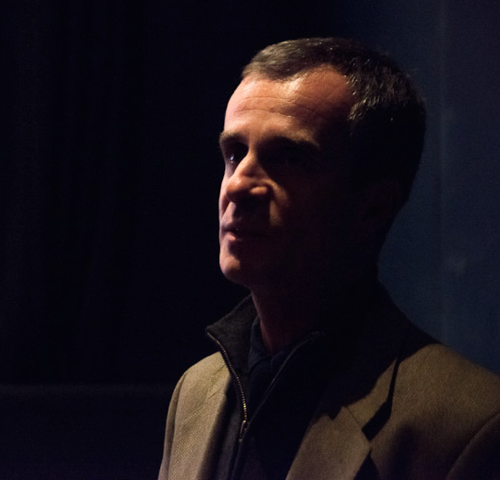
Para el desarrollo de su actividad, la Cátedra Cervantes contará con el respaldo del departamento de español Universidad de Edimburgo, con un siglo de historia; con la figura del Catedrático Cervantes, profesor de la propia universidad quien apoyará la labor del Instituto Cervantes; y con la cesión de los espacios necesarios para la realización de cursos de formación de profesores y programas culturales.
Al acto de inauguración asistirán, además de García Montero, el rector de la Universidad de Edimburgo, Peter Mathieson; la directora Académica del Instituto Cervantes, Carmen Pastor; el cónsul general de España en Edimburgo, Ignacio Cartagena, y el nuevo Catedrático Cervantes, Alexis Grohmann.
Esta iniciativa nace con el apoyo de las autoridades escocesas, como se puso de relieve en el encuentro que mantuvo García Montero (en una visita previa a la capital escocesa) con el vicepresidente del parlamento escocés, Liam McArthur; y en una posterior visita del ministro de Constitución, Asuntos Exteriores y Cultura del Gobierno de Escocia, Angus Robertson, a la sede central del Cervantes en Madrid.
La Universidad de Edimburgo, fundada en 1583, es una de las más grandes y prestigiosas del Reino Unido. La enseñanza del español en Escocia en los últimos años ha tenido un crecimiento sostenido, un hecho que puso de relieve el informe Language Trends, del British Council, que mostraba el afianzamiento del idioma español como la lengua extranjera más demandada por los estudiantes de secundaria en todo el Reino Unido.
Agenda de García Montero en Edimburgo
El programa en la ciudad escocesa arrancará este martes 23 de mayo con la celebración de un recital en la Biblioteca de la Poesía en el que participarán, junto a Luis García Montero, la poeta y traductora Anna Crowe y el catedrático Alexis Grohmann, además de cónsul General de España en Edimburgo, Ignacio Cartagena.
Al día siguiente, en el consulado, el director del Cervantes se reunirá con el profesor de Lingüística Hispánica y coordinador de los programas de enseñanza en línea del Departamento de Lenguas y Culturas Europeas de la Universidad de Edimburgo, Carlos Soler.
Ese mismo día, 24 de mayo se celebrará la inauguración de la Cátedra Cervantes en la Universidad de Edimburgo (a las 18:30 h —hora local de Escocia—), acto en el que intervendrán el rector de la Universidad de Edimburgo, Peter Mathieson, el director del Cervantes, Luis García Montero, el cónsul general de España, Ignacio Cartagena Nuñez y el Catedrático Cervantes Alexis Grohmann.
Catedrático de Literatura Española Contemporánea en la School of Literatures, Languages and Cultures, Grohmann es, además, director de la Cátedra Arturo Pérez-Reverte, en la Universidad de Murcia y académico correspondiente extranjero, de la Real Academia Española. Autor de un centenar de publicaciones, entre sus trabajos destaca la investigación acerca de los autores Javier Marías y Arturo Pérez-Reverte, sobre los que ha publicado sendos ensayos.
El español en Escocia
Con cinco millones de habitantes, Escocia es una de las cuatro regiones administrativas que integran el Reino Unido —junto con Inglaterra, Gales e Irlanda del Norte—. Su capital, Edimburgo, destaca por su gran oferta cultural y proyección internacional con numerosos festivales como el Festival Internacional del Teatro de Edimburgo y el Festival Internacional de las Artes de Edimburgo
En los últimos años la enseñanza del español ha crecido regularmente en el país pese al declive gradual de la enseñanza de lenguas extrajeras en la región. Asimismo, los informes del British Council Language Trends constatan que el español es una de las lenguas estratégicamente más importantes para el Reino Unido.
Actualmente se enseña español en casi la mitad de las escuelas de primaria y en dos tercios de los institutos de secundaria lo ofrecen como lengua tercera, sin embargo, existe una gran necesidad de programas de formación a profesores de español para atender a la demanda.
Próximo programa de actividades académicas y culturales
La Cátedra Cervantes plantea en el ámbito académico un programa de formación de profesores con el DADIC (Diploma de Acreditación Docente) que incluirá la observación de clases en la Universidad de Edimburgo para los profesores participantes, un curso sobre la legua de herencia o la oferta de cursos de español para profesores utilizando la plataforma AVE.
Entre las actividades culturales, participará en la Feria del Libro de Edimburgo, el Festival de Cine Español de Edimburgo, el Simposio internacional de poesía española en la Universidad de Saint Andrews, y la celebración de una mesa redonda sobre la figura de Javier Marías en Reino Unido.
The University of Edinburgh welcomes the first Cervantes Chair on Wednesday 23rd May
The director of the Instituto Cervantes, Luis García Montero, travels to the United Kingdom where on Wednesday he will inaugurate the Cervantes Chair at the University of Edinburgh, an initiative dedicated to the stimulation of the teaching and promotion of the Spanish language, and the dissemination of Hispanic culture in Scotland. Dependent on the Instituto Cervantes in Manchester, this event heralds the official establishment of the first extension of the institution in the Scottish capital. Alexis Grohmann, hispanist and Professor of Contemporary Spanish Literature, will occupy the Cervantes chair.

For the development of its activity, the Cervantes Chair will have the support of the Spanish Department at the University of Edinburgh, with its century of history. The figure of the Cervantes Professor, a professor from the university itself, will support the work of the Cervantes Institute. The activity of the extension will also be developed via the assignment of the necessary spaces for the realization of teacher training courses and cultural programmes.
The inauguration ceremony will be attended by the Principal of the University of Edinburgh, Peter Mathieson; the Academic Director of the Instituto Cervantes, Carmen Pastor; The Consul General of Spain in Edinburgh, Ignacio Cartagena, and the Cervantes Professor, Alexis Grohmann; as well as by Luis García Montero himself.
This initiative was developed with the support of the Scottish authorities, as highlighted in the meeting held by García Montero (on a previous visit to the Scottish capital,) with the Deputy President of the Scottish Parliament, Liam McArthur; and in a subsequent visit, with the Minister for Constitution, Foreign Affairs and Culture of the Scottish Government, Angus Robertson, at the Instituto Cervantes Headquarters in Madrid.
The University of Edinburgh, founded in 1583, is one of the largest and most prestigious universities in the United Kingdom. The teaching of Spanish in Scotland has experienced a sustained increase in recent years, a fact highlighted by the British Council’s Language Trends report, which showed the consolidation of the Spanish language as the foreign language most demanded by secondary school students throughout the United Kingdom.
García Montero’s Agenda in Edinburgh
García Montero’s programme in the Scottish city will begin on Tuesday, 23rd May, with a Poetry Recital at the Scottish Poetry Library, in which the poet and translator Anna Crowe and Professor Alexis Grohmann, as well as Consul General of Spain in Edinburgh, Ignacio Cartagena will participate alongside Luis García Montero.
The following day, the Director of the Instituto Cervantes will meet, at the Consulate of Spain, with the lecturer of Hispanic Linguistics and coordinator of the online teaching programs of the Department of European Languages and Cultures of the University of Edinburgh, Carlos Soler.
On the same day, the 24th May, the inauguration of the Cervantes Chair will be held at the University of Edinburgh (at 6:30 p.m. local time in Scotland.) The Principal of the University of Edinburgh, Peter Mathieson, will address attendees, as well as the director of the Cervantes, Luis García Montero, the consul general of Spain, Ignacio Cartagena Nuñez and the Cervantes Professor Alexis Grohmann.
Professor of Contemporary Spanish Literature at the School of Literatures, Languages and Cultures, Grohmann is also director of the Arturo Pérez-Reverte Chair at the University of Murcia and foreign correspondent of the Royal Spanish Academy. Author of more than a hundred publications, his works include numerous books on the authors Javier Marías and Arturo Pérez-Reverte.
Spanish in Scotland
With a population of five million, Scotland is one of the four devolved regions constituting the United Kingdom, alongside England, Wales, and Northern Ireland. Its capital, Edinburgh, stands out for its great cultural offer and international projection with numerous festivals such as the Edinburgh International Theatre Festival and the Edinburgh International Festival of the Arts.
In recent years, the teaching of Spanish has grown steadily in the country despite the gradual decline in the teaching of foreign languages in the region. Likewise, the British Council report Language Trends confirm that Spanish is one of the most strategically important languages for the United Kingdom.
Spanish is currently taught in almost half of UK primary schools, with two thirds of secondary schools offering Spanish as a third language. This being said, there is a great need and demand for training programmes for Spanish teachers , in order to keep up with current trends.
Upcoming programme of academic and cultural activities
In the academic field, the Cervantes Chair proposes a teacher-training programme focussed on the DADIC (Diploma of Teaching Accreditation) that will include the observation of classes at the University of Edinburgh for participating teachers, a course on the Heritage Languages, as well as Spanish courses for teachers using the AVE platform.
In regards to cultural activities, the chair will participate in the Edinburgh Book Fair, the Edinburgh Spanish Film Festival, the International Symposium of Spanish Poetry at the University of Saint Andrews, and the celebration of a round table on the figure of Javier Marías in the United Kingdom.
The 12th Spring Weekend of the London Spanish Film Festival is here!
The London Spanish Film Festival Spring Weekend returns from 1 to 4 June to Ciné Lumière for its 12th edition with three wonderful debut feature films.
These include Juan Diego Botto’s magnificent as well as important On the Fringe, which features powerful performances by Luis Tosar and Penélope Cruz, as well as the latest film by Cesc Gay, Stories Not to Be Told.
As part of the program, two special screenings: one paying homage to the genius of Pablo Picasso on the 50th anniversary of his death, and one about a very special journey of discovery by flamenco singer Niño de Elche.
The 19th edition of the London Spanish Film Festival will take place from 20 to 28 September 2023.
